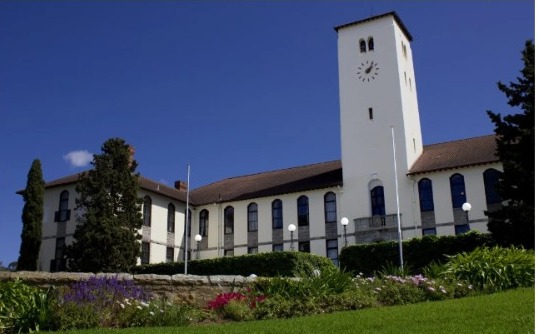By Ilva Pieterse
Rhodes University has persistently opposed the fixation on international ranking systems dating back to at least 2013. That year, a panel was hosted by Rhodes University‘s Education Department to “explore what can and cannot be measured in universities, and where the ‘obsession’ with measurement comes from.”
Panellists included former Vice-Chancellor, Dr Saleem Badat, and Distinguished Professor Heila Lotz-Sisitka, SARChI Chair for Global Change Social Learning Systems Development. The panel was chaired by Professor Sioux McKenna, Director of the Rhodes University Centre for Postgraduate Studies, who had made an observation about a significant rise in the global preoccupation with university rankings over the preceding decade or two.
“The results of ranking systems are front page news in many countries, and universities invest a great deal of time and money to improve their position on these lists,” she said.
Prof McKenna said at least three fundamental issues stood out:
- The assumption that a number of measurable items that are quantified and averaged can stand as a proxy for quality;
- The weighting of the items is a subjective matter, and slight shifts in the weighting have a major impact in the ranking raising real questions about validity;
- There are a great many issues that should be of considerable concern to universities that are immeasurable – and that these issues will be neglected in the race for improved ranking.
Over the past ten years, Prof McKenna has steadfastly held these beliefs and has campaigned against international rankings for South African universities. However, in 2022, Rhodes University still stood as the sole South African institution to take a principled stand against engaging with ranking systems. Prof McKenna articulated her views in a 2022 Daily Maverick article, describing university rankings as an unscientific and socially damaging billion-dollar game.
Rhodes University’s decision to abstain from participating in global rankings reflects the University’s commitment to addressing the genuine needs of the (South) African education sector without subscribing to a one-size-fits-all approach to excellence.
“Global international rankings suffer from weaknesses in data, contain arbitrary processes and indexes, and undermine validity. They present Western, North American universities as the pinnacles of education ideals,” said Dr Badat, referring to such framings as ‘world-class universities’.
Ironically, more and more of these ‘Western” universities are now adopting Rhodes University’s decades-long approach. Yale and Harvard Law Schools, which are less affected by the detrimental effects of the ‘ranking race’ than South African universities, both announced their withdrawal from US News & World Report university rankings last year.
Heather Gerkin, Dean of Yale Law School, stated, “We have reached a point where the rankings process is undermining the core commitments of the legal profession,” echoing Dr Badat’s sentiments from 2013. Harvard, Stanford, Columbia, and the University of Pennsylvania followed suit.
Last month, Utrecht University withdrew from Times Higher Education World University Rankings, citing concerns about the rankings’ emphasis on scoring and competition.
Critiquing rankings as ‘unreliable and unscientific’ is not a novel concept. In his 2018 book ‘The Soul of a University’, Rhodes University Distinguished Alumnus and renowned logistician Professor Chris Brink devoted a chapter to what he called ‘the phenomenon of university world rankings being nothing more than a global confidence trick’.
In a recent University World News article, Professor Brink stated: “The methodological argument against ‘university world rankings’ is well known and has been made many times. Essentially, it boils down to this: to compile a ranking, you need to make so many arbitrary choices between equally plausible alternatives that the result becomes meaningless.”
His piece explains how any ranking of universities reflects the choices made by the ranker at least as much as it might reflect any reality about those universities.
Some universities use their international rankings as a marketing tool, often conflating the quality of their offerings with their ranking. Many parents, potential students, and other stakeholders may not fully comprehend how these ranking systems operate and the motivations behind them. With a growing number of academics and institutions highlighting the troubling flaws and problematic assumptions within these systems, there is optimism that this attempt at commercialising higher education can be revealed for its true nature and halted.
Ilva Pieterse is a Senior Social Media Officer at Rhodes University.
This article was originally published by Rhodes University Communications.


